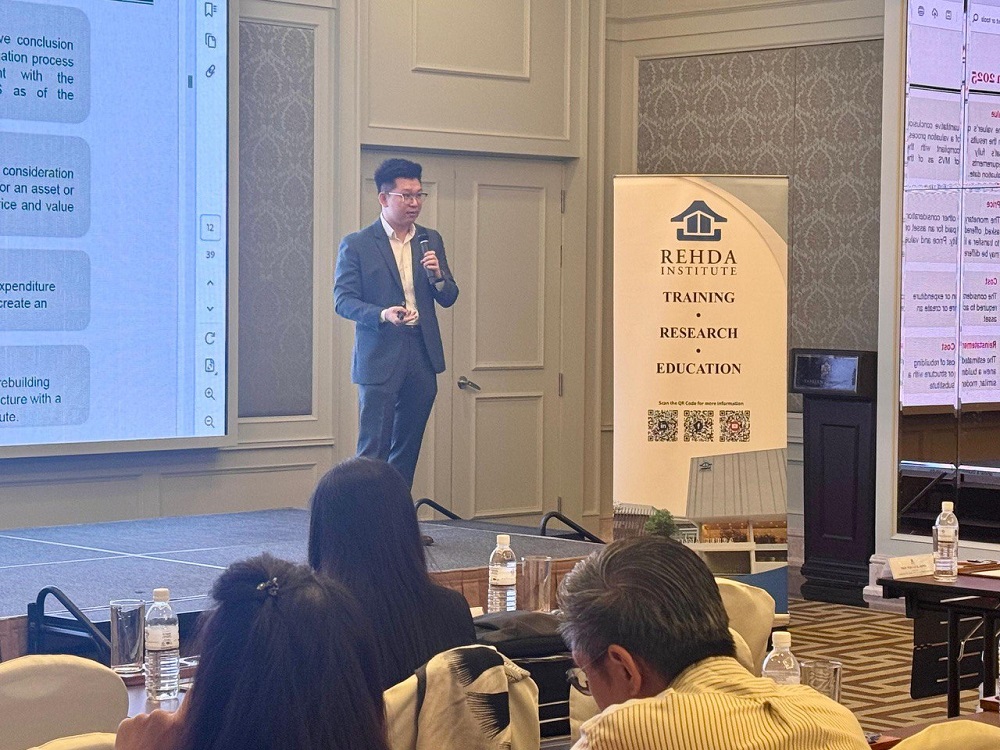
- “Developers often don’t even have dedicated bumi sales staff or marketers, so the message gets lost with prospective buyers.”
GEORGE TOWN (Sept 18): Developers must change how they approach bumiputera lot sales, shifting from a “compliance mindset” to genuine demand-matching if they want to clear stocks faster.
Property investment consultancy firm FAR Capital CEO Faizul Ridzuan said most developers treat bumi quotas as a box-ticking exercise but rarely ask what bumi buyers actually want.
Read also:
MPDP (Penang Edition): Penang property transaction volume, value hold steady
“Many unsold bumi units are either poorly located, overpriced or designed without buyer preferences in mind.
“Data shows bumi buyers lean towards landed homes in growing townships with good connectivity. Instead, developers often push high-rise units in fringe areas that don’t resonate,” he said during his presentation: “Cracking the Code: Data-Driven Strategies to Accelerate Bumi Lot Sales”, at the second day of the Malaysian Property Development Process (MPDP) Penang Edition held at the Eastern & Oriental Hotel last week.
He urged developers to use analytics to profile target demographics more accurately and tailor the product mix accordingly.
“Stop relying on guesswork. Look at transaction patterns, income segments, and lifestyle trends. When you align the product with real demand, bumi lots don’t stay stuck,” he said.
Faizul stressed that catering to bumi buyers requires distinct considerations, not just broad-brush strategies.
He highlighted cultural and lifestyle factors, such as ensuring facilities like proper surau or halls for community events.
“Young bumi households may prefer smaller, centrally-located units close to gyms, malls, and cafes, while families still need functional three-bedroom layouts. Developers must design with these spectrums in mind,” he said.
“Developers often don’t even have dedicated bumi sales staff or marketers, so the message gets lost with prospective buyers. Just like how Country Garden hired mainland Chinese to sell [its properties] to mainlanders, developers should be tailoring their outreach to bumi demographics,” he told EdgeProp.
“It’s also about where you market. If you’re not visible in the spaces where bumi buyers frequent, you’ll never reach them. The segment needs capable marketing, not just compliance,” he added.
Faizul also recommended cash rebates to support renovations and furnishing, and to ease the burden of upfront costs: “It’s not always about lowering prices, buyers just need flexibility in financing”.
Property valuation explained
In explaining how market valuation is derived, global real estate consultancy firm Knight Frank Malaysia director Sr Goh Chong Theng said key factors that shape valuation include location, density, plot ratio and regulatory compliance.
“Valuation is essentially an opinion of market value, formed according to professional standards such as the Malaysian Valuation Standards (7th Edition, 2025).

“Different valuers may arrive at slightly different figures, but the basis of valuation must always be consistent, taking into account legal interest, assumptions and the valuation date,” he said during his presentation: “Understanding Property Valuation: Key Drivers and Implications for Developers”.
“Proximity to amenities, schools, hospitals and transport networks can directly support demand, while factors such as leasehold expiry, hillside risks, or heritage zoning can limit value.
“With ESG (environmental, social, governance) now in the spotlight, sustainability elements are also increasingly being considered,” he said.
He added that property valuation in Malaysia is tightly regulated under Act 242 and falls under the purview of the Finance Ministry.
Goh further explained that market value does not necessarily correspond to construction cost.
“For instance, construction expenses may rise, but that does not automatically translate into higher property value. Instead, valuation remains market-driven, shaped by demand, supply and the ‘highest and best use’ of the land,” he elaborated.
Sustainability can drive investor confidence
The MPDP (Penang Edition) was a two-day executive certification programme organised by the Real Estate and Housing Developers’ Association (Rehda) Institute in collaboration with Sunway University’s Institute of Global Strategy and Competitiveness (IGSC).
Another presenter, Sunway University Global Strategy & Competitiveness director Prof Pervaiz K. Ahmed, who spoke on “Sustainable Development as a Competitive Advantage: Rethinking Real Estate for Long-term Value”, highlighted how sustainability can drive long-term growth and investor confidence.
Renewable energy solutions provider Progressture Solar CEO Cliff Siaw presented on “Smart Selling Point: Helping Buyers Save or Earn through Solar-enabled Homes,” showcasing how solar adoption enhances property appeal while reducing energy costs for homeowners.
Mei Ee Architect principal and co-founder Loh Mei Ee spoke on “Designing and Delivering Developments: The Architect’s Journey through Planning, Compliance and Construction”, offering insights into the design process and regulatory challenges faced by architects.
The next edition, MPDP (Klang Valley Edition), will take place on Sept 24 and 25, followed by Rehda Institute’s annual flagship conference later this year.
As Penang girds itself towards the last lap of its Penang2030 vision, check out how the residential segment is keeping pace in EdgeProp’s special report: PENANG Investing Towards 2030.


.jpg?KpT57Dw7Y_UzSKH8HsHP9pRQ_peOr_KV)



